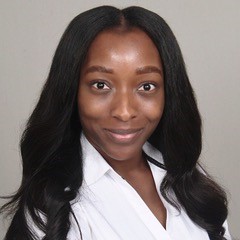 Chemical products to lighten skin can have negative effects.
Chemical products to lighten skin can have negative effects.
Rokeshia Renné Ashley, assistant professor in the department of communication at Florida International University, explores why many women still turn to these products.
Dr. Rokeshia Renné Ashley is a Miami native and mother to her daughter, Emery. Dr. Ashley’s research focuses on health communication in body image and modification. She examines how black women manage their appearance relative to reception of health information and negotiating modification in a racial and health context. To date, Dr. Ashley’s work has been published in the Howard Journal of Communications, Health Communication, Journal of Black Studies, and Communication, Culture & Critique. She is the author of children’s book, SunFlower Child which teaches Black and Brown girls how to love, care for, and protect their skin. Her work has been publicly shared by Black Enterprise, NBC News, U.S. News & World Report, the Chicago Tribune, Columbia Missourian, Allure Magazine, Red Lake Nation News and more; collectively over 10 million readers across varying platforms.
Negotiating Health Information Concerning Skin Whitening
Colorism is found in Black and Brown communities around the world. People with darker skin face prejudice, while those with lighter skin may have more favorable social and economic outcomes.
As a result, many women turn to chemical products to lighten their skin. In fact, it’s a lucrative, billion-dollar industry. But in doing so, they put their health in jeopardy. The ingredients in these products have been tied to everything from high blood pressure to cancer and organ failure.
In my research, I looked at how Black women in South Florida communicate about, receive, and understand health information related to skin whitening. It’s a practice many women in South Florida have brought from Caribbean countries, where it is more commonplace due to the history of colonialism.
I found that women mostly rely on family, friends and non-knowledgeable sources when turning to these products. Notably, they do not turn to health professionals, who could give them factual, scientific information about the potential negative health impacts. As is the case in many instances for Black communities, access to health professionals is limited or non-existent, and there is mistrust with racially incongruent physicians.
Additionally, I found that many women are introduced to skin whitening at two critical points in their lives – puberty and post-partum. With that in mind, I am building on my research to develop ways to reach girls and promote positive messages about loving, caring for and protecting their skin.

Comments
One response to “Rokeshia Renné Ashley, Florida International University – Negotiating Health Information Concerning Skin Whitening”